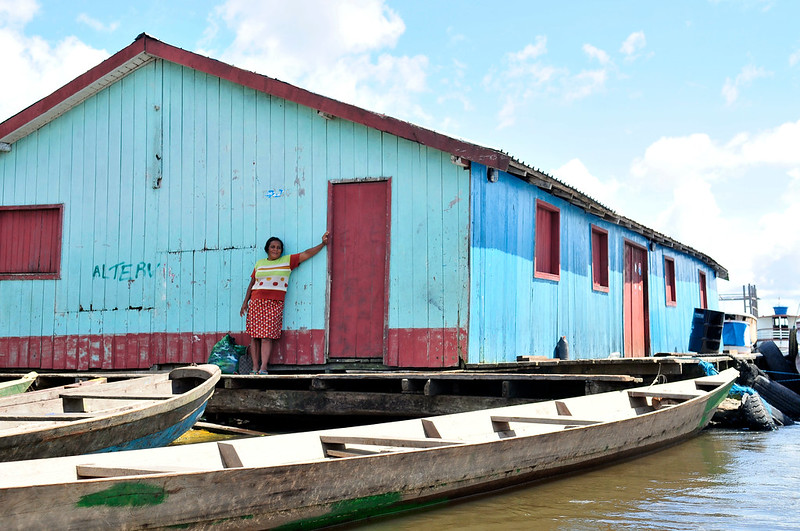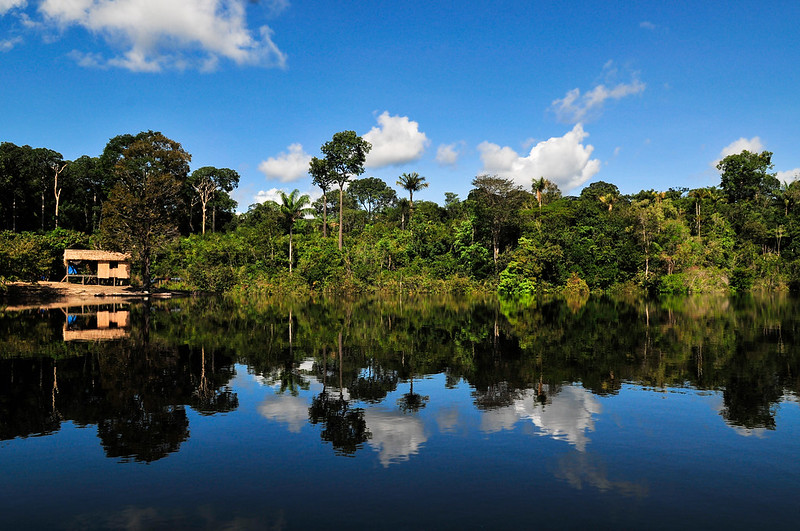 Earth’s oceans and lands are essential carbon sinks and slow climate change by reducing the rate at which carbon emissions accumulate in the atmosphere. Without the combined role of resilient terrestrial, coastal and marine ecosystems, the rate of increase of atmospheric CO2 would double and the current concentration would be significantly higher.
Earth’s oceans and lands are essential carbon sinks and slow climate change by reducing the rate at which carbon emissions accumulate in the atmosphere. Without the combined role of resilient terrestrial, coastal and marine ecosystems, the rate of increase of atmospheric CO2 would double and the current concentration would be significantly higher.
Moreover, Natural Climate Solutions (NCS) to climate change, such as deforestation reduction, reforestation, ecosystem restoration, and carbon-storing agriculture and soil management, have the potential to provide over one-third of carbon mitigation necessary for a 2-degree global warming target.
In addition, thriving ecosystems are essential to protect biodiversity and natural watersheds, manage climate risks, reduce socio-environmental conflicts, and provide income and wealth for local communities, particularly Indigenous and Afro-descendant communities who live and depend on resilient ecosystems.
Despite these significant global and local benefits, key carbon sinks, such as the main tropical forests in the Amazon, Congo Basin and Southeast Asia, are under severe stress and in some cases reaching critical tipping points. There is an urgent need for investment, policy, and technological innovations to strengthen both the basic science of natural carbon sequestration and the governance mechanisms that enable local communities to protect and enhance carbon-storing ecosystems. Indigenous and Afro-descendant communities have historically been markedly successful forest environmental stewards. In Latin America, deforestation rates in their collectively owned territories have been significantly lower than in ecosystems with comparable conditions, and even lower than in some protected natural areas. But the factors that have allowed these communities to protect ecosystems are changing rapidly and highlight the need for increased support and novel engagement models between diverse global and local actors.

Through the MIT Environmental Solutions Initiative’s Natural Climate Solutions Program, we have been combining technological development and community-based planning to create a toolkit of technology-appropriate and community-driven natural climate solutions to support communities living in vulnerable ecosystems to monitor, protect, and pioneer sustainable uses of natural resources. Through our work, we have identified a wide range of technological innovations that, combined with educational resources and deep community engagement, can increase the agency of local communities to protect and enhance ecosystems that are the world’s most important natural carbon sinks. These include:
- Novel sensors and robotics to track the health of ecosystems, help manage sustainable extraction, and promote carbon storage while protecting biodiversity.
- Greater potential to access payments for environmental services or other forms of financial mechanisms supported by advanced analytics.
- Artificial intelligence and predictive models to identify regions at risk of deforestation and provide actionable information for pre-placement of assets and incentives to prevent land use conversion.
- Continuous, reliable, and robust monitoring and communication systems that engage local communities in the collection and transfer of hyper-localized information within very large areas of dense vegetation.
All of these activities provide substantial opportunities for education, co-creation, and engagement models that result in the adoption of emerging technologies as sources of ecological knowledge, income, and local wealth creation.
A new field of opportunities is rapidly emerging as governments, international actors, academia, and NGOs are increasingly aware of the necessity and efficacy of NCS to address both the climate and biodiversity crises while also repairing structural inequities born of historical racism and the protracted marginalization of Indigenous communities. Social entrepreneurs who leverage technology to support marginalized communities with a deep history of effective stewardship protecting critical ecosystems are uniquely positioned to tackle these intertwined challenges.
Apply here to Solve’s Resilient Ecosystems Challenge, or go to the MIT Climate Portal to learn more about these and other climate solutions.
Editor’s Note: A snapshot of the global state of peace, 2021The opinions expressed here by Impakter.com columnists or contributors are their own, not those of Impakter.com. — In the Featured Photo: The Amazon River. Featured Photo Credit:CIFOR











